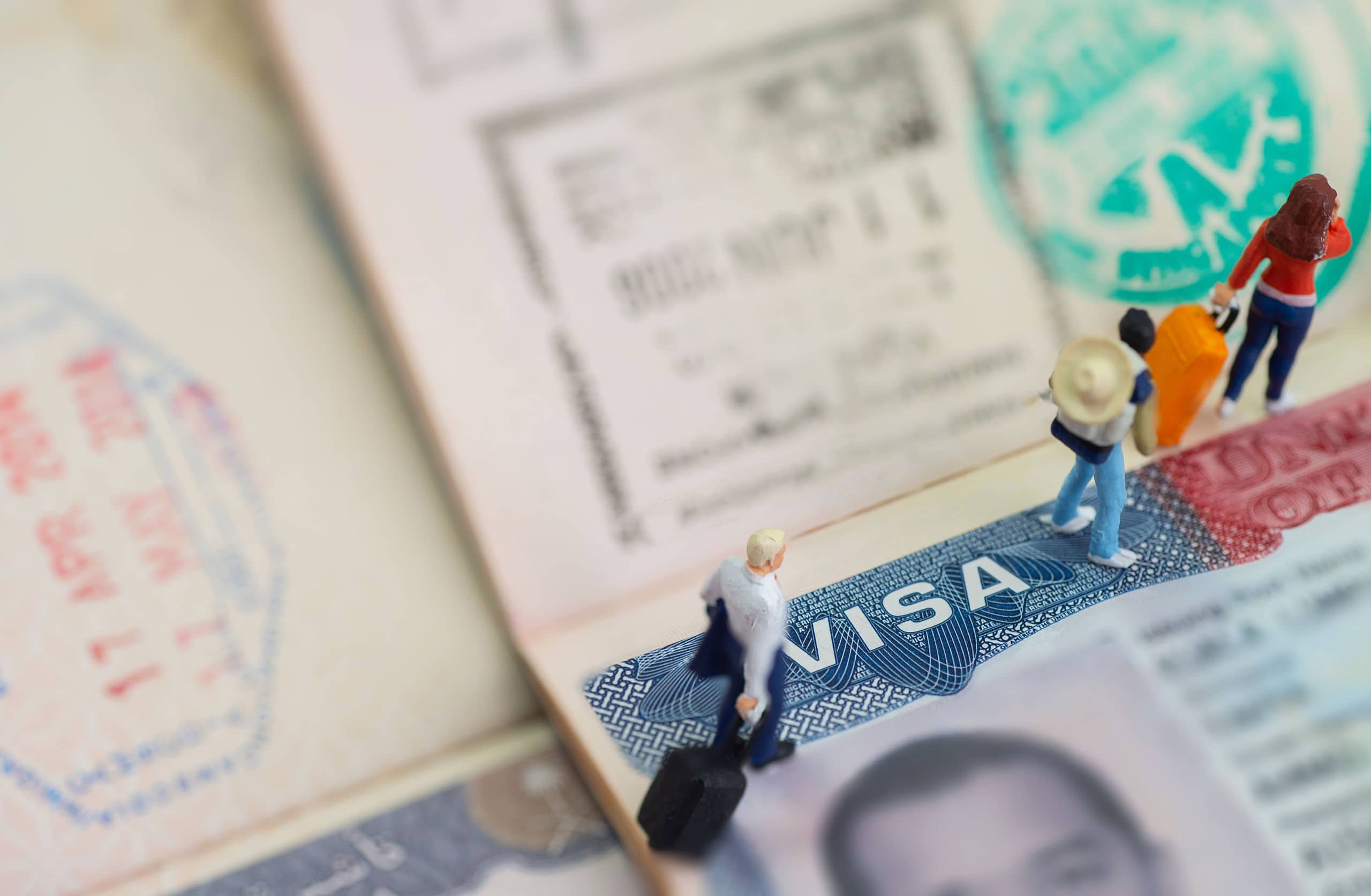Published December 20, 2020
By: Richard Hanus, Esq.
Approximately 80 million foreign nationals visit the U.S. annually. They come to see family and friends, attend special celebrations, visit tourist attractions and conduct business meetings. They enter on B-1/B-2 visitor visas issued by U.S. consular posts abroad or without visas, if they are Canadian or pursuant to the Electronic System Travel Authorization (“ESTA”) program if they are citizens of certain nations. Two common question presented on this subject – to which there are no clear cut answers – are: 1) what is the maximum period I can remain in the U.S. for any given visit? 2) How often can I visit the U.S.?
Let’s start with the basic premises upon which foreign nationals are issued visas and allowed entry to visit the U.S. The visitor: 1) resides outside the U.S., as indicated by home ownership/rental, family ties, and/or employment and intends to return to resume their life there and 2) has sufficient funds to cover expenses for their trip and not be inclined toward unlawful employment. Without these conditions being established, a foreign national can be denied a visitor visa or entry into the U.S.
For those needing a visa to visit the U.S., success in obtaining a visa pretty much depends on economics – i.e. the more well off you are in your home country – and thus inclined to return to your good life there – the more likely you’ll get your visa. For those from an ESTA country, where no visa is required, it is assumed, based on prevailing economic conditions of the nation at play, that you have the motivation and will to return.
Foreign nationals with visitor visas are typically afforded 6 months to spend in the U.S. upon entering. By law, ESTA visitors are allowed a maximum of 90 days. In some circumstances, visitors are eligible to file for an extension of their visits in the U.S. To be sure, maxing out the allowed period of stay poses no issues for future entries, BUT ONLY, if the visitor abides by the terms of their visa and their subsequent entry does not happen too soon.
For example, if a foreign national spends their maximum allowed period of stay of 6 months in U.S., absent some extenuating circumstance they should not plan on coming back to visit for at least another 6 if not 12 months. Same goes for an ESTA entrant, i.e. a 90 day visit to the U.S. should be followed by a period of at least 90 if not 180 days back home, before attempting a new ESTA entry. To be sure, these are not hard, fast rules, just observations based on client experiences interacting with U.S. Department of Homeland Security/Customs and Border Protection inspectors who get suspicious and start questioning their visitor intent.
What happens when a long or long-ish visit is followed up with another visit within a relatively short period? The foreign national should expect to be questioned extensively on a number of topics, sometimes involving very personal details about their life. Why are you spending so much time in the U.S.? Don’t you have a job you need to return to in your home country? Have you worked in the U.S. before? Why were you in the U.S. for so long on your last visit? The inquiry will involve common sense questions regarding whether the foreign national truly has a life and residence back in their home country.
Even more intrusive than questions, sometimes CBP officials are known to search intending visitors’ luggage and even their cellphones for incriminating evidence of “immigrant intent” or that the foreign national has worked or will work in the U.S. If things get to that point, the CBP inspector will likely conduct a detailed interrogation which will be transcribed and serve as the basis to deny admission to the U.S., cancel the foreign national’s visa and/or issue an expedited removal order. To be sure, any such CBP action will generally present significant ramifications for the foreign national and their plan to once again return to the U.S.
The above discussion does not cover many related topics and areas of concerns, such as available options for a foreign national to change their intent and seek a way to legally remain in the U.S. following entry as a visitor. The main moral of this story though, is the privilege of visiting the U.S. must be exercised carefully and with an eye toward the limits of the law and the warning signs that prompt government suspicion.
PUBLISHED December 20, 2020– “IMMIGRATION LAW FORUM” Copyright © 2020, By Law Offices of Richard Hanus, Chicago, Illinois

